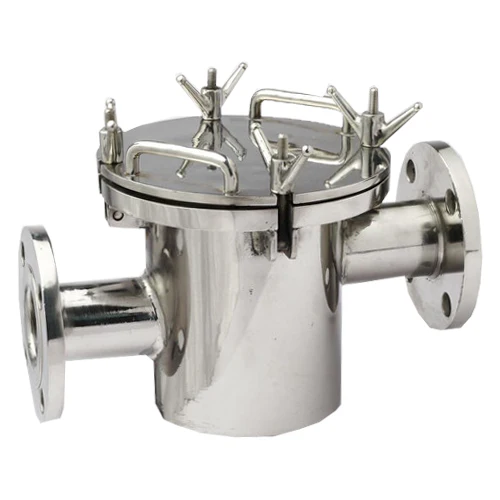Introduction: The Importance of Filtration in Modern Industry
In today’s fast-paced industrial world, maintaining clean systems is crucial for the efficient operation of machinery and processes. Contaminants in fluids can lead to equipment failures, reduced efficiency, and increased operational costs. Traditional filtration methods, while effective, often fall short when it comes to removing fine ferrous particles from liquids and gases. This is where magnetic filters come into play, offering a revolutionary approach to filtration technology. In this article, we will delve deep into the world of magnetic filters, exploring their working principles, applications, and benefits. Moreover, we’ll highlight how custom solutions like Custom AlNiCo Magnets and Custom SmCo Magnets can enhance the efficiency and effectiveness of magnetic filtration systems.
What is Magnetic Filtration?
Magnetic filtration is a process that uses magnetic fields to capture and remove ferrous particles from fluids. These particles, often microscopic, can cause significant wear and tear on machinery, leading to downtime and maintenance costs. By integrating magnetic filters into a system, industries can achieve cleaner fluids, longer equipment life, and improved overall efficiency.
Magnetic filters consist of powerful magnets arranged in a specific configuration to attract and hold ferrous particles as fluid passes through. The strength and design of the magnets are crucial to the effectiveness of the filtration process. This is where customized solutions such as Custom AlNiCo Magnets and Custom SmCo Magnets come into play, offering tailored magnetic properties to suit specific industrial needs.
The Working Principle of Magnetic Filters
At the heart of magnetic filtration is the principle of magnetic attraction. When a fluid containing ferrous particles flows through a magnetic filter, the particles are attracted to and held by the magnetic field. This process effectively removes contaminants from the fluid, ensuring that only clean fluid continues through the system.
The configuration of the magnets within the filter can vary depending on the application. Some common configurations include:
- Magnetic Rods and Bars: These are placed in the path of the fluid, capturing ferrous particles as they pass by.
- Magnetic Grates and Plates: These are used in larger systems where a higher volume of fluid needs to be filtered.
- Magnetic Drums and Separators: These provide continuous removal of ferrous particles, ideal for high-volume applications.
The selection of the magnetic material is critical to the filter’s performance. Custom AlNiCo Magnets and Custom SmCo Magnets offer unique properties that can be tailored to meet specific requirements, such as high-temperature resistance or corrosion resistance.
Applications of Magnetic Filters
Magnetic filters are versatile and can be used in a wide range of industries. Some of the key applications include:
- Automotive Industry: Magnetic filters are used in engines and transmissions to remove metallic debris, enhancing the longevity and performance of vehicles.
- Manufacturing: In metalworking and machining processes, magnetic filters remove metal shavings and fine particles from coolants and lubricants.
- Food and Beverage Industry: Ensuring product purity by removing ferrous contaminants from liquids and slurries.
- Oil and Gas Industry: Protecting equipment by removing metal particles from drilling fluids and produced water.
- Pharmaceuticals: Maintaining the integrity of pharmaceutical products by filtering out contaminants.
- Power Generation: Enhancing the efficiency and lifespan of turbines and other equipment by keeping fluids free from metallic particles.
In each of these applications, the use of Custom AlNiCo Magnets and Custom SmCo Magnets can provide optimized performance, tailored to the specific needs of the industry.
Benefits of Magnetic Filters
The adoption of magnetic filters offers numerous benefits over traditional filtration methods. These include:
- Enhanced Filtration Efficiency: Magnetic filters can capture particles as small as 1 micron, far surpassing the capabilities of conventional filters.
- Reduced Maintenance Costs: By removing ferrous particles, magnetic filters help prevent wear and tear on machinery, leading to lower maintenance costs and less downtime.

- Eco-Friendly: Magnetic filtration is a sustainable solution, as it reduces the need for disposable filter media and decreases waste.
- Longer Equipment Life: Cleaner fluids mean less abrasive wear on equipment components, extending their operational life.
- Cost-Effective: Despite the initial investment, magnetic filters offer long-term cost savings through reduced maintenance, lower replacement costs, and improved efficiency.
- Versatility: Magnetic filters can be used in a wide range of applications and industries, making them a versatile solution for many filtration needs.
The Role of Custom Magnets in Magnetic Filtration
The effectiveness of a magnetic filter heavily relies on the quality and specifications of the magnets used. This is where custom magnets come into play. Custom solutions like Custom AlNiCo Magnets and Custom SmCo Magnets allow for the design of magnets with specific properties tailored to the filtration requirements.
Custom AlNiCo Magnets: AlNiCo magnets are known for their excellent temperature stability and resistance to corrosion. These properties make them ideal for applications where high-temperature performance is crucial. For instance, in the automotive industry, where engine components are exposed to high temperatures, Custom AlNiCo Magnets ensure reliable filtration without degradation in performance.
Custom SmCo Magnets: Samarium Cobalt (SmCo) magnets are known for their high magnetic strength and excellent resistance to demagnetization. They are particularly useful in environments where both high temperature and corrosive elements are present. Industries such as oil and gas, where equipment is exposed to harsh conditions, benefit greatly from Custom SmCo Magnets. These magnets ensure the magnetic filter performs optimally, even in the most demanding environments.
Designing Magnetic Filters with Custom Magnets
The design of a magnetic filter involves several considerations, including the type of fluid, the size and type of ferrous particles to be removed, and the operating conditions. Custom magnets play a vital role in addressing these considerations:
- Magnetic Strength: The strength of the magnetic field determines the size of particles that can be captured. Custom magnets can be designed with the required magnetic strength to ensure efficient filtration.
- Shape and Configuration: The shape and arrangement of the magnets within the filter can be customized to maximize the capture of ferrous particles. This includes designing magnetic rods, plates, or drums that fit the specific application.
- Material Properties: Depending on the operating conditions, such as temperature and exposure to corrosive fluids, the material properties of the magnets can be tailored. Custom AlNiCo Magnets and Custom SmCo Magnets offer flexibility in material selection to meet these requirements.
- Filter Design: The overall design of the magnetic filter, including the housing and flow dynamics, can be optimized using custom magnets. This ensures that the filter operates efficiently and effectively in its intended application.
Case Studies: Magnetic Filtration in Action
To illustrate the effectiveness of magnetic filtration, let’s explore a few case studies from various industries:
Case Study 1: Automotive Industry
A leading automotive manufacturer faced issues with metallic debris in their engine oil, leading to frequent maintenance and costly downtime. By integrating magnetic filters with Custom AlNiCo Magnets, they were able to significantly reduce the presence of ferrous particles in the oil. This resulted in extended engine life, reduced maintenance costs, and improved vehicle performance.
Case Study 2: Metalworking Industry
A metalworking company experienced frequent issues with metal shavings in their coolant system, leading to equipment wear and reduced efficiency. By implementing magnetic filters with Custom SmCo Magnets, they achieved a cleaner coolant system. This not only improved the lifespan of their machinery but also enhanced the quality of their finished products.
Case Study 3: Oil and Gas Industry
An oil drilling company needed a solution to remove ferrous particles from their drilling fluids, which were causing damage to their equipment. The harsh environment required a robust solution, so they opted for magnetic filters with Custom SmCo Magnets. The result was a significant reduction in equipment wear, leading to lower maintenance costs and increased operational efficiency.
Future Trends in Magnetic Filtration
As industries continue to evolve, the demand for more efficient and reliable filtration solutions will grow. Magnetic filtration is poised to play a significant role in meeting these demands. Future trends in magnetic filtration include:
- Advancements in Magnetic Materials: Ongoing research into new magnetic materials will lead to even more effective and specialized filters. Innovations in materials like rare earth magnets will enhance the performance of magnetic filters.
- Integration with IoT and Smart Technologies: Magnetic filters will become more integrated with IoT devices, allowing for real-time monitoring and maintenance. This will enable predictive maintenance and reduce unexpected downtime.
- Sustainability and Eco-Friendly Solutions: As industries focus more on sustainability, magnetic filtration will be favored for its eco-friendly nature, reducing waste and promoting cleaner production processes.
- Customization and Specialization: The trend towards customization will continue, with more industries requiring tailored solutions for their specific filtration needs. Companies like MagnetsTek will play a crucial role in providing custom magnet solutions to meet these demands.
Conclusion
Magnetic filtration represents the future of filtration technology, offering unparalleled efficiency and effectiveness in removing ferrous particles from fluids. With the integration of custom solutions like Custom AlNiCo Magnets and Custom SmCo Magnets, industries can achieve optimized filtration tailored to their specific needs. From the automotive and metalworking industries to oil and gas and beyond, magnetic filters are revolutionizing the way we think about filtration, ensuring cleaner systems, reduced maintenance costs, and improved operational efficiency. As we look to the future, the advancements in magnetic filtration will continue to drive innovation and sustainability across various industries.


